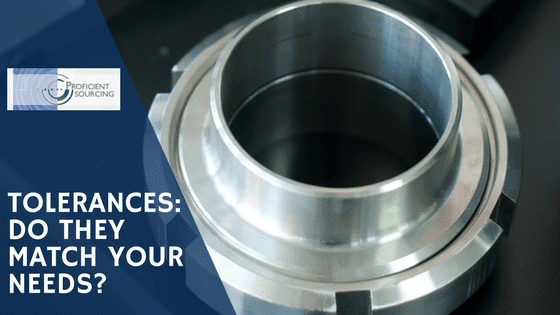 On rare occasions we see inquiries requiring tolerances that raise questions. Requiring excessively precise work means higher cost and the exclusion of potential suppliers. We recently chose not to bid on a fabrication requiring extreme precision. Perhaps that degree of precision is needed, but it also may be a case of over-engineering. In any case, our potential supplier does this sort of work routinely, so the potential customer missed a relationship with a potentially useful supplier. On the other hand, the prospect may intend to exclude all but candidates comfortable working with such precision.
On rare occasions we see inquiries requiring tolerances that raise questions. Requiring excessively precise work means higher cost and the exclusion of potential suppliers. We recently chose not to bid on a fabrication requiring extreme precision. Perhaps that degree of precision is needed, but it also may be a case of over-engineering. In any case, our potential supplier does this sort of work routinely, so the potential customer missed a relationship with a potentially useful supplier. On the other hand, the prospect may intend to exclude all but candidates comfortable working with such precision.
We recently encountered a more problematic situation. An OEM requested a quote for large machined plates. The finished item was a machine base, so the parts needed to match up on the edges and with several cut-outs. Some burnout activity was indicated, and our source noted the specified tolerances mandated water jet; plasma could not hold those tolerances. And so we quoted with water jet.
Let us help you find a supplier to match any tolerances you may require, contact us today!
Our quote, while close, was not chosen. The previously existing supplier retained the business, even though the OEM indicated there were other negatives with that supplier. But in this case price prevailed and everyone moved on.
Later we learned the project was indeed plasma cut and when we pointed out the tolerances could not be met with this method, we were told the status quo was just fine, and engineering was not going to be asked to change their specified tolerances.
We chose not to pursue future competition for this business. Obviously, if we are producing known out of tolerance parts, a future of potential problems lurks. Apparently, pointing out this tolerance non-compliance and the OEM’s acceptance was “appreciated”, but did not cause a change in supplier.
So here we have a case where a company specifies tolerances they do not police and a supplier who apparently knows they are violating those tolerances (or if they do not, what does that say about that supplier?). When the company discovers this inconsistency, they choose to perpetuate the situation rather than correct the tolerances required.
So in this case we have chosen not to pursue future RFQ’s, despite the work being in our supplier’s sweet spot. Tolerances required are an automatic candidate screener, so we hope you will take a look if your RFQ’s ask for special or unusual precision. If nothing else, such precision entails extra risk to the supplier, and some may choose not to compete for such opportunities. Is this what you intend?

